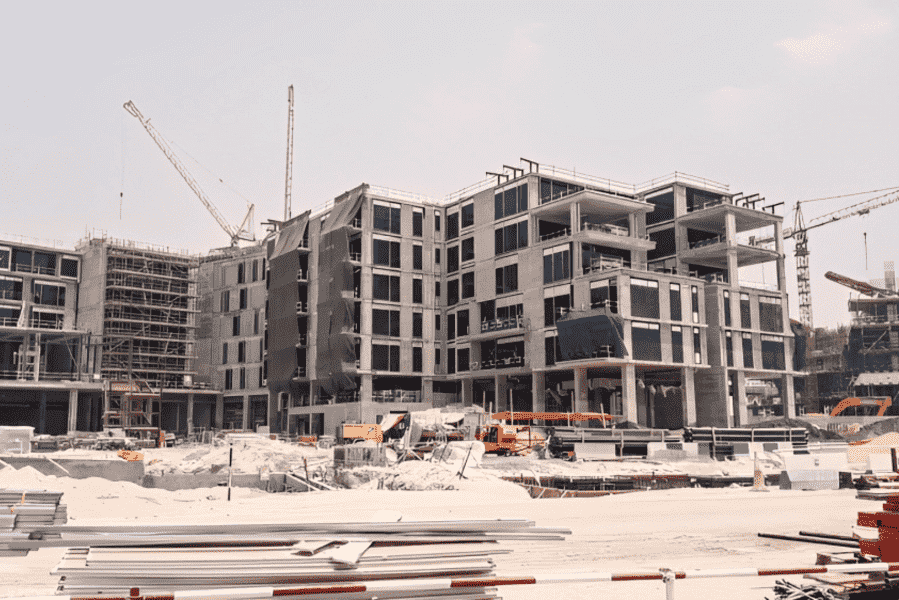One year into the conflict, the impact of the Russia-Ukraine war on construction has understandably yet to ease.
Russian President Vladimir Putin sent about 200,000 soldiers into Ukraine on 24 February 2022. It made for the biggest European invasion since the end of World War 2.
The war and subsequent sanctions imposed on Russia broke down supply chains between both countries. Indirect supply chains via Russia to Asia were also impacted.
Read more: Will the Russian-Ukrainian war impact emerging economies?
Raw material, oil and gas, and transportation services prices spiked as an immediate result of the conflict.
These macroeconomic trends have touched the MENA region’s construction sector over the past year. The passage of time has somewhat dulled the immediate shock to product markets. But the continued conflict remains a major influence on project markets in the region in 2023.
Raw materials prices
The most immediate of the Russia-Ukraine war’s impacts on construction was through the building materials market.
Metal prices soared in the last few days of February 2022 to reach record highs in the weeks following the war’s commencement.

Read more: How might China’s BRI 2.0 impact Middle East projects?
While material pricing spikes eased off briefly in July, values have continued to record upward trends since end-2022. This is understood to be largely due to oil price fluctuations and increasing global demand from sectors such as automotive and industry.
“There are supply chain issues due to the Russia-Ukraine war,” a tender manager based in Dubai tells Economy Middle East.
“Raw materials prices are elevated, so this is affecting tender pricing and costs on ongoing projects.”

The global construction industry’s dependence on Russia and Ukraine for raw materials like copper, nickel, wood, and steel will continue to influence materials availability and prices.
Wider impact
Supply chain disruptions, which were already influencing construction markets during COVID-19, have largely continued since the Russia-Ukraine war escalated in February 2022.
In June, local media AlRai reported the Kuwaiti construction sector was grappling with contractual disagreements, increasing the possibility of a “wave” of contract terminations.
“Some contractors refused to implement contracts that they had signed at the beginning of [2022] but did not start implementing due to reasons related to the issuance of licenses or considerations related to either party,” the report added.
Read more: Acciona bullish on 2023 MENA projects’ market
“They justified this with compelling reasons related to an unprecedented increase in the prices of construction goods. This led to high inflation rates that have strained the contractors’ ability to continue with the implementation.
“It was learned that contractors reported to some clients that they were unable to bear the difference from their budget unless the contract value was reconsidered.”
Contracts across the Gulf are understood to have undergone budget corrections since the war broke out.
Russia-Ukraine war: construction outlook
Market sentiment largely suggests that price pressure on building materials is unlikely to entirely ease until a resolution to the war is on the horizon.
Read more: Economic factors may test Egypt’s real estate market in 2023
Oil market uncertainties, too, will remain a concern for Middle East project decision-makers.









